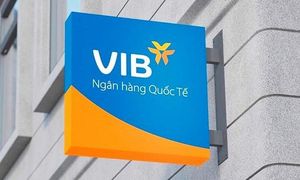In a significant move within the fitness tech industry, Strava, a leading social fitness platform, announced on April 17, 2025, its acquisition of Runna, a London-based app that specializes in personalized running training plans and coaching. This strategic acquisition aims to bolster Strava's offerings in the running segment, tapping into the growing popularity of running worldwide.
Founded in 2021 by Dom Maskell and Ben Parker, Runna quickly gained traction, securing approximately $6.3 million in funding for its innovative AI-powered coaching solutions. The app has become a favorite among runners, helping millions prepare for races ranging from 5Ks to marathons. According to Strava's Year In Sport data, running is now the fastest-growing sport globally, with nearly 1 billion runs recorded on the platform in 2024 alone. In fact, 43% of Strava users expressed a desire to participate in significant races in 2025, highlighting the increasing demand for effective training plans.
Strava's CEO, Michael Martin, emphasized the importance of this acquisition, stating, "Coming off Strava’s accelerated innovation and unprecedented growth last year, it was the right time to look for complementary businesses that could create even greater value for our users." This acquisition is expected to enhance Strava's capabilities, addressing one of its notable weaknesses—the lack of comprehensive in-app training plans.
For Strava, the acquisition represents an opportunity to integrate Runna's personalized coaching into its extensive network of users, which exceeds 150 million across more than 185 countries. Martin noted, "Running is booming worldwide—nearly 1 billion runs were recorded on Strava in 2024. Runna’s mission to give every runner a personalized plan to achieve their goal is a perfect fit." The deal is seen as mutually beneficial, providing Runna with access to Strava's vast community and resources, while Strava can enhance its offerings to cater to the needs of runners.
Despite the excitement surrounding the acquisition, neither company disclosed the financial terms of the deal. However, sources suggest that Runna's value is estimated to be upwards of $40 million, with its founders set to receive a multimillion-pound payout. This acquisition follows Strava's previous purchases, including the 2022 acquisition of Recover Athletics, which focused on injury prevention for runners.
As Strava integrates Runna into its ecosystem, users can expect changes in the coming weeks and months. Martin indicated that while the two platforms will initially operate independently, there are plans to enhance the user experience by merging features from both apps. "Effectively, nothing changes for the user out of the gate. Our plan with this acquisition is to invest further into growing the Runna app, invest in the Runna team, and then continue to operate them as independent but in an integrated fashion," he explained.
Runna's co-founder, Dom Maskell, expressed enthusiasm about the partnership, stating, "We are delighted to become part of Strava as we continue to focus on bringing the world the most customized and personalized training plans available." He further elaborated on the potential for collaboration, saying, "The ambition is to do things where it makes sense. It’s like, the user comes on and they want to see what run they’re doing today. That sits in Runna, and then they want to go find a route for that run — that sits in Strava." This seamless integration aims to enhance the overall user experience, making it easier for runners to access the resources they need.
Strava's commitment to maintaining its role as an open platform for fitness remains strong. The company integrates with over 100 training apps through its API, ensuring that developers can connect their services to Strava, thereby enhancing user engagement. "Strava is the community for all active people regardless of sport, skill level, location, app or device," Martin stated, reinforcing the company's dedication to inclusivity in the fitness space.
As the fitness industry continues to evolve, Strava's acquisition of Runna signals a broader trend towards personalized training solutions. With the increasing number of individuals taking up running, particularly among younger generations, the demand for tailored coaching and training plans is expected to grow. The integration of Runna's innovative technology with Strava's expansive community could potentially set new standards in the fitness app market.
However, as with any acquisition, there are concerns about how this will affect existing users of both platforms. Strava has faced scrutiny in the past for its subscription model, and users are wary of potential changes to pricing structures following the acquisition. Currently, Strava offers a free tier with premium features available for $79.99 annually, while Runna's subscription is priced at $119.99 per year. As the companies navigate this transition, transparency and communication with users will be crucial to maintaining trust and satisfaction.
In summary, Strava's acquisition of Runna not only enhances its offerings but also signifies a pivotal moment in the fitness app landscape. As the running community continues to grow, the integration of personalized coaching solutions could provide runners with the tools they need to achieve their goals, fostering a more engaged and connected fitness community.









